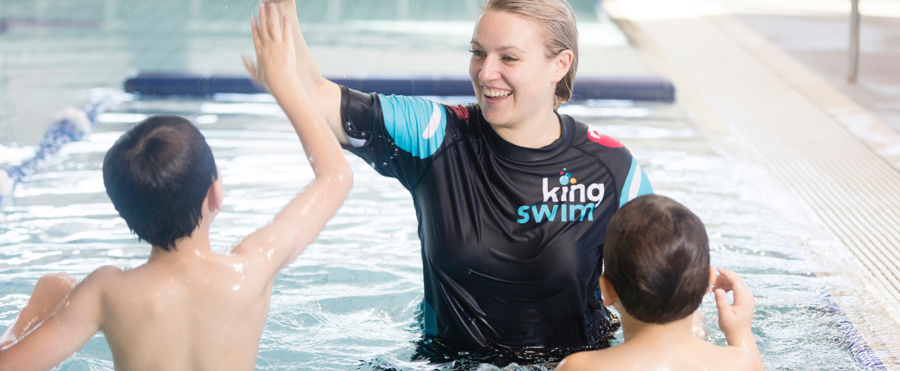While children of all ages are keen learners, children learn more quickly during their early years (0-5) than at any other time in life. This highlights why it’s so important to start swimming early and stick with it even through the more challenging times, including the toddler years and the transition from parent-child to independent lessons.
Research has confirmed the first three to five years are particularly important for development. Data compiled by the Rauch Foundation found that 85 percent of a person’s brain is developed by the time they are five years old. Meaning early experiences play a crucial role in development – having a direct impact on children’s future learning skills as well as social and emotional abilities.
Therefore, it’s crucial to set good habits in these early years including swimming and water safety. Particularly as taking part in swimming lessons has been found to greatly contribute to physical, cognitive and social development during this time.
As children move through their early years, they take great pleasure in discovering what they can do and learning new skills, however these overwhelming physical and emotional changes can be challenging.
During this stage children are learning what psychologists call emotional regulation, which may mean drastic mood swings or toddler tantrums as they learn to express and control their emotions.
They also develop independence during this time, learn the word “no!’ and can be fearful or clingy, needing extra reassurance.
What our children learn and experience during this time will have a long-term impact, which is why it’s so important at this age to encourage experimentation of new concepts and skills like swimming and confidence in the water.
Australia’s leading parenting expert Dr Justin Coulson says this early age bracket can be a sensitive and difficult one. While early introductions to water may have gone well for infants, without consistent exposure to the water children can develop a fear, so it’s important not to lose momentum and build up their confidence with continual lessons, encouragement and a strong routine.
Justin’s tips for making learning during this time a little easier
- If your child is just starting out, go slow. Focus on enjoyment, comfort, and developing a routine that feels safe and predictable to them. Kingswim’s Baby Play classes is a great start. It focuses on water familiarisation and helps babies feel comfortable in the water before starting lessons. Classes run for 45 minutes, however parents can come and go as they please, so you can start with a short introduction. The class is the only one on at that time to ensure minimal noise for baby’s peaceful water play.
- Make it fun. One way to get children comfortable in the water and excited about their lessons is seeing their parent’s positive attitude and enthusiasm for swimming. Be encouraging about progress, no matter how small. Additionally, young children learn through play, which is why our Kingswim lessons include plenty of games to keep kids excited.
- Acknowledge your child for being brave. If they’re ‘not’ being brave, talk to them each night about what brave things they’ve done that day. Ask them to talk about how it felt to be brave. Eventually they’ll feel brave enough to get back into the pool.




